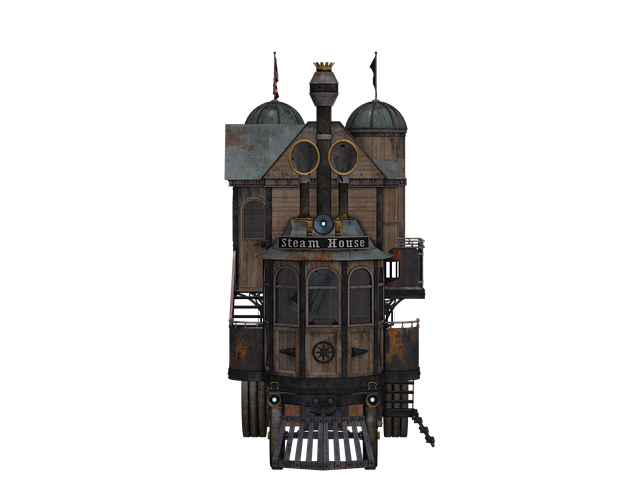Rugged environments face unique security challenges due to harsh weather and terrain. Professional-grade renewable energy security systems, particularly solar-powered, offer a sustainable solution. Solar panels provide consistent power for advanced security equipment, eliminating fuel needs and complex maintenance. These systems are reliable, cost-effective, and environmentally friendly, making them ideal for remote locations with limited grid access. By leveraging solar power, these renewable energy security systems ensure continuous surveillance and protection with minimal intervention required.
In remote, rugged environments, reliable and sustainable security solutions are paramount. Professional-grade solar-powered security offers an innovative approach, leveraging renewable energy to overcome the challenges posed by harsh conditions. This article explores the benefits of solar-powered security systems for such environments, delving into key features, implementation strategies, and maintenance considerations. Discover how these solutions combine advanced technology with ecological responsibility to enhance safety and resilience.
- Understanding the Challenges of Rugged Environments
- The Benefits of Solar-Powered Security Systems
- Key Features and Components of Professional-Grade Systems
- Implementing and Maintaining Renewable Energy Security Solutions
Understanding the Challenges of Rugged Environments

Rugged environments present unique challenges for traditional security systems, where harsh weather conditions, remote locations, and unpredictable terrain can hinder effective surveillance and monitoring. These areas often rely on diesel generators or grid power, which are not only costly but also contribute to environmental pollution. Implementing professional-grade solar-powered security systems offers a sustainable solution to these issues.
By harnessing the power of renewable energy, such systems provide an efficient and eco-friendly approach to enhancing security in remote and rugged settings. Solar panels, designed for all-weather conditions, can be strategically placed to capture maximum sunlight, ensuring consistent energy generation. This technology is ideal for locations where grid connectivity is unavailable or unreliable, offering a reliable power source for advanced security equipment such as high-definition cameras, motion sensors, and alarm systems.
The Benefits of Solar-Powered Security Systems

Renewable energy security systems, such as solar-powered options, are transforming the way we approach safety in rugged and remote locations. One of the key advantages is their environmental friendliness; by harnessing the power of the sun, these systems offer a sustainable solution to traditional fuel-guzzling alternatives. This shift towards green technology is particularly beneficial for areas with limited access to grid electricity or where reducing carbon footprints is a priority.
Moreover, solar security systems provide long-term cost savings and reliability. Once installed, solar panels generate electricity without the need for frequent fuel replacements or complex maintenance routines typically associated with diesel or petrol generators. This makes them ideal for rugged environments where accessibility might be challenging, ensuring consistent power supply to critical security equipment, such as cameras, sensors, and lighting.
Key Features and Components of Professional-Grade Systems

Professional-grade solar-powered security systems for rugged environments are designed to offer robust protection with minimal maintenance. Key features include durable, weatherproof hardware capable of withstanding extreme conditions, such as high winds and temperatures. These systems often incorporate advanced sensors that detect movement, vibration, or changes in light levels, triggering alerts and automatic responses.
Key components typically comprise solar panels optimized for low-light conditions, high-capacity batteries to store energy, and powerful inverters that convert solar power into usable electricity. Integrated data communication modules ensure continuous monitoring and remote access via secure networks. Additionally, these systems often feature customizable alert configurations, allowing users to tailor responses to specific threats. This combination of renewable energy sources and advanced technology ensures reliable security without relying on grid power or combustible fuels.
Implementing and Maintaining Renewable Energy Security Solutions

Implementing professional-grade solar-powered security in rugged environments offers a sustainable and robust solution for remote areas with limited access to traditional energy grids. These renewable energy security systems are designed to withstand harsh conditions, ensuring continuous surveillance and protection. By harnessing the power of the sun, security cameras, sensors, and lighting can operate autonomously, reducing reliance on fossil fuels and maintenance costs.
Maintaining these systems involves minimal intervention, as solar panels and batteries require little upkeep. Regular cleaning and occasional checks for damage or debris are sufficient to keep them functioning optimally. Moreover, advanced monitoring technologies allow remote management, enabling quick response times to any issues that may arise. This proactive approach ensures the reliability of renewable energy security solutions over the long term, making them an ideal choice for areas where consistent power supply is a challenge.
Renewable energy security systems offer a sustainable and robust solution for rugged environments, addressing the unique challenges posed by these areas. By harnessing solar power, these professional-grade systems provide reliable and eco-friendly protection without the need for constant fuel replenishment or grid connectivity. With their advanced features and components, they ensure enhanced safety while adapting to the demanding conditions of remote locations. Implementing such solutions not only strengthens security but also contributes to a greener future, making them an ideal choice for navigating the complexities of rugged landscapes.
